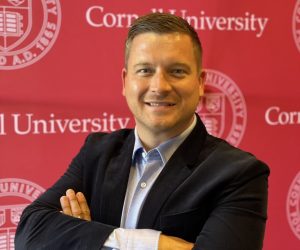Summit warns on impact of climate change

MANCHESTER’S business community need to understand the likely impact of climate change and discover ways of profiting from carbon reduction technologies, says Bruntwood chairman Michael Oglesby.
Mr Oglesby called on the city’s public and private sector bodies “to come come together and pool our resources” not only to deal with the problems Manchester will face from climate change, but also to identify and capitalise on the business opportunities created.
Mr Oglesby was speaking after the EcoCities summit on Monday, which saw the launch of research developed by Bruntwood and the University of Manchester spelling out the potential damage it could have on the city.
The research found that Greater Manchester could see its temperatures rise by up to up to 3.6°C by 2050, and that its winters are likely to be 36% wetter and summers 36% drier.
The summit discussed the impact of such changes on the city’s economy, as well as how infrastructure will need to be improved to respond to increased flooding and the greater costs of cooling buildings.
Mr Oglesby said: “UK industry has a strong imperative to tackle climate adaptation, and to do so before it is too late.
“Our concern is that the prevailing economic conditions will mean that action is put off until times are better.
“Not only are the social and environmental reasons for tackling this issue clear, but there is also a compelling business argument.”
Mr Oglesby said that the city needed to address issues such as the likely impact of increased flooding on the city’s electricity network, for instance, and to be aware of the potential damage that could be caused to schools, hospitals, fire stations and other amenities.
He also said there were long term issues which needed to be addressed over water usage, and that businesses need to be aware of the likely increases in energy costs as CO2 emissions are taxed more heavily.
He said that Manchester-based businesses should consider developing technologies in insulation, in retrofitting existing properties and in technologies that help firms to cut energy use.
He cites wind generation as an example of a missed opportunity as investments in technology that had been made by Danish businesses were now paying off.
“I want to make sure that the technologies we will need are not just made in Britain, but in Manchester and that we have the trained engineers and installers to fit them,” he added.
Professor Dame Nancy Rothwell, president and vice-chancellor of The University of Manchester, said the project had “proved to be an excellent collaboration…in supporting decision-makers and business leaders to respond to both the challenges and opportunities that a changing climate presents.”
Sir Richard Leese, leader of Manchester City Council, added: “I’m proud that Greater Manchester is leading the way on such an important issue.
“I hope that the EcoCities project – in showing the way forward for an integrated approach to climate adaptation – will offer other cities, both within the UK and further afield, some best practice solutions to this seemingly most intractable of issues.”








